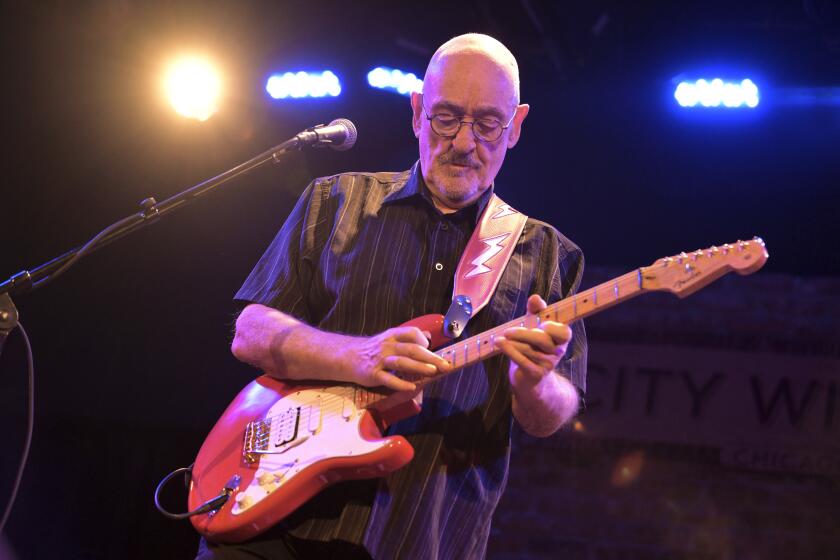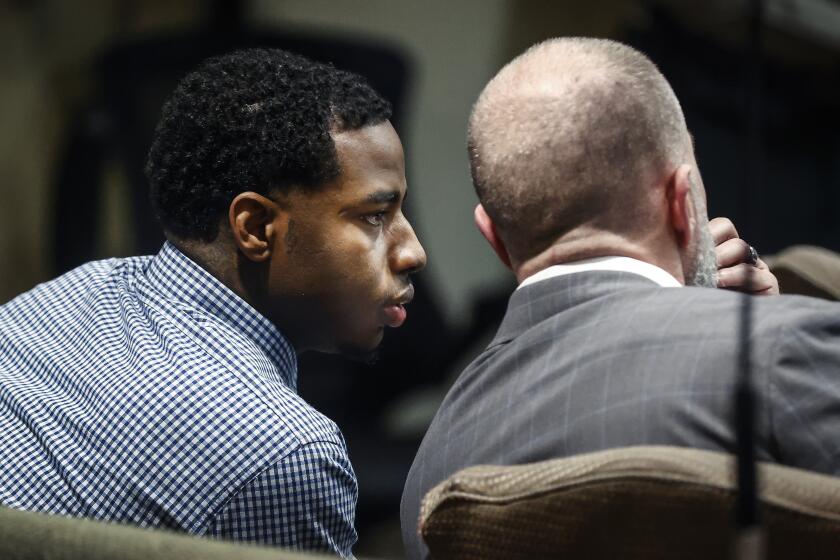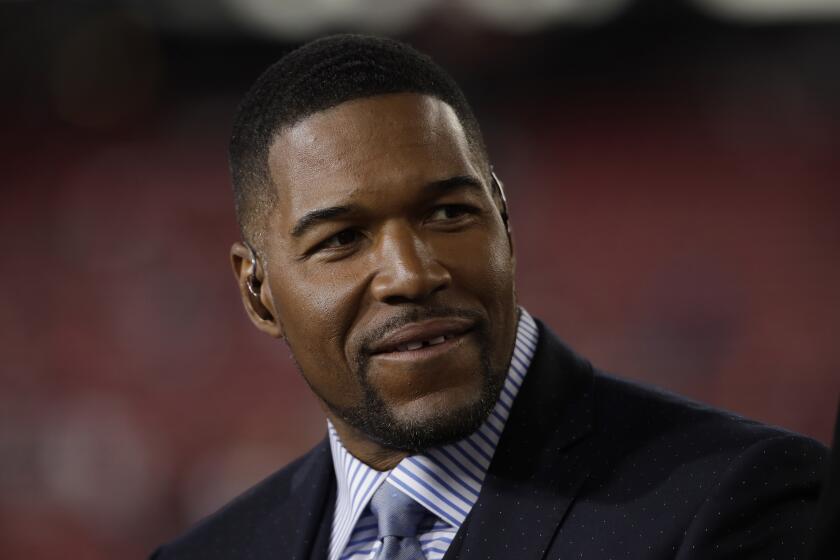Book review: ‘The Black Nile’ by Dan Morrison
The Black Nile
One Man’s Amazing Journey Through Peace and War on the World’s Longest River
Dan Morrison
Viking: 310 pp., $26.95
Searching for a good bush hat in the covered market in Kampala, the capital city of Uganda, author Dan Morrison recounts a conversation with a crazed deacon in the opening pages of “The Black Nile,” his account of a 4,000-mile journey from Lake Victoria to the Mediterranean along the storied river.
“‘Do you … believe in Jesus?’” the zealot panted.
Morrison twists free of the proselytizer, but not before the danger all around him seeps into the headwaters of the narrative like the black river silt that gives this book its name. In a region steeped in radical transition, God has many names: Allah, Jesus, oil, electricity, Nile perch, Kalashnikov, dysentery, money, murder, sleep, rape, survival. The local dysfunctions and disposable humanity that define the Nile region come to life in an engaging series of meetings and encounters as the author and his best friend, Schon, paddle down the river in a custom-made boat.
What starts in dreamy terms as a boat trip in Uganda from Jinja to Karuma Falls — the two friends bumming rides with friendly fishermen, catching dinner in the Sudd marshlands of Sudan no thanks to Schon’s superior fishing skills, eyeing the snaggletoothed remains of Sudanese pyramids and checking out various off-limits dam projects — almost immediately hits the rocks of the actual river. Schon’s “beer muscle” is enough to get them clear of those rocks, but the larger obstacle is Africa, and it has no respect for “the best-laid schemes.”
The mostly likable, slightly reality-averse Schon provides an important contrast and chorus in the book’s first half (he leaves Morrison halfway through, and it’s a wash regarding what the book loses and gains with that departure). What’s lost: A lot of history and trivia is packed into the dialogue between these travel buddies. There is also a nascent dialectic featuring Schon’s increasing annoyance with the reality of Africa that finally sends him home. Schon’s view evolves on the eve of his departure, when he observes that part of the problem is a lack of education. “How are you supposed to want something if you’ve never seen it?” The revelation still smacks of a New Yorker View of the World, but it’s an improvement.
Morrison’s encounter with a mysterious wanderer on the border of Sudan and Egypt underscores the folly of trying to understand the people and culture surrounding the Nile after just one trip down it (or in Schon’s case, half a trip). Morrison asks where this fellow comes from. No one has been able to get an answer out of the man. “He leaned forward,” Morrison writes, “and looked at me with his mouth just a little bit open, dark eyes speaking patience and humor, the way an adult might receive an infant’s babble.”
Harking back to Alan Moorehead’s classic river chronicles “The White Nile” and “The Blue Nile,” “The Black Nile” owes no small debt to the likes of Redmond O’Hanlon and Ryszard Kapuscinski, and perhaps to the specter of Joseph Conrad’s “Heart of Darkness” (here the ever-present possibility of death-by-post-colonialism stands in for Conrad’s Kurtz).
Morrison is an agreeable raconteur, and he’s skilled at conjuring the menacing disorder of a continent dump-trucked in the Class VI whitewater of post-colonial commerce. We learn of herbal treatments for HIV, the author duckwalking back to his bed from a latrine in the Malakal moonlight with militia bullets zipping overhead, the ozone-eating cattle camps, a band of dreadlocked child warriors of the Lord’s Resistance Army in Uganda, the ubiquitous fish-choking water hyacinth (an invasive weed deposited by a careless Western botanist) and violent squawks of ethnic fighting. These are the raw materials in a memorable romp through infinite complexity.
During that first interaction with the crazed deacon, Morrison imagines telling the guy the truth: “I’m terrified we’re going to get our fingers and lips chopped off in the north, or that we’ll be shot by bandits in southern Sudan, or that we’ll be arrested and beaten for snooping around in Khartoum.” None of that comes to pass, but the cumulative near-misses, the chronic money shortage and the moving stories have a huge impact by the time Morrison reaches Rosetta in Egypt, where the Nile dumps into the Old World.
“The Black Nile” ends abruptly at a Cairo train station — the crazed deacon replaced by a random Koran-thumper who gets popped in the face by a cop. It is the right way to close this road and river book, which proves in stark detail a well-worn pre-Socratic notion that, “we both step and do not step in the same rivers. We are and are not.” But Africa is.
Friedlander is a writer and publishing veteran. He lives in Brooklyn.
More to Read
The biggest entertainment stories
Get our big stories about Hollywood, film, television, music, arts, culture and more right in your inbox as soon as they publish.
You may occasionally receive promotional content from the Los Angeles Times.










